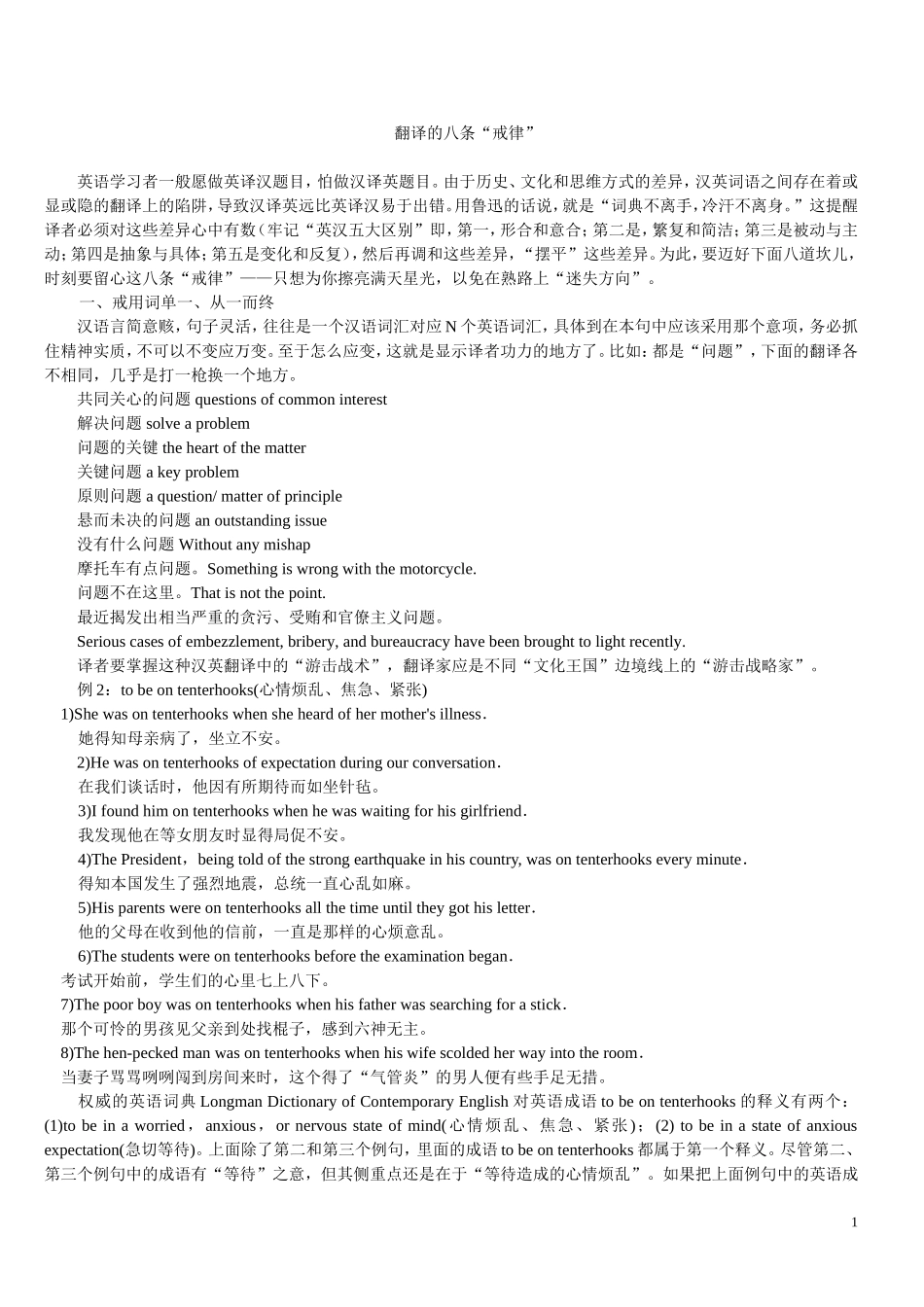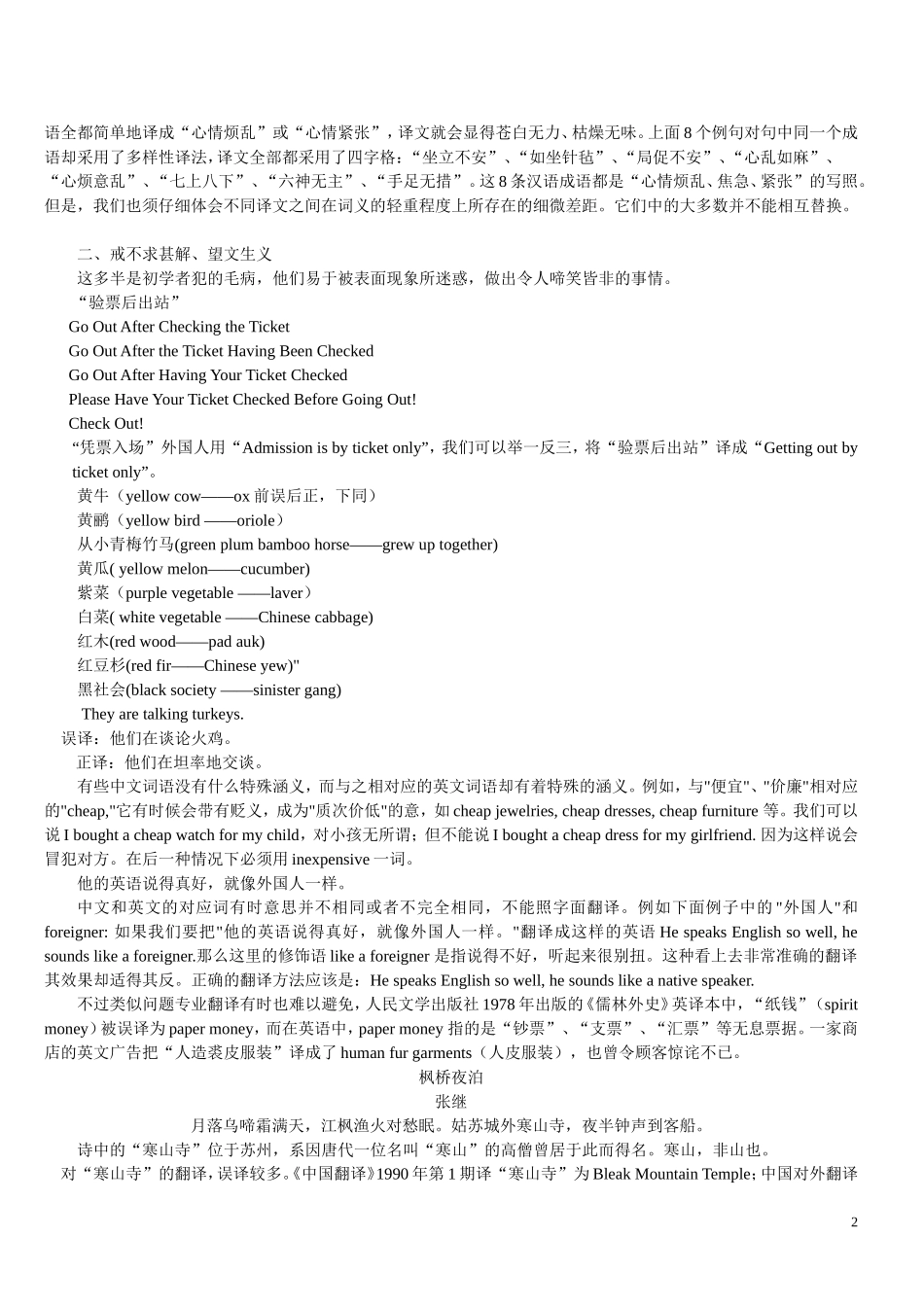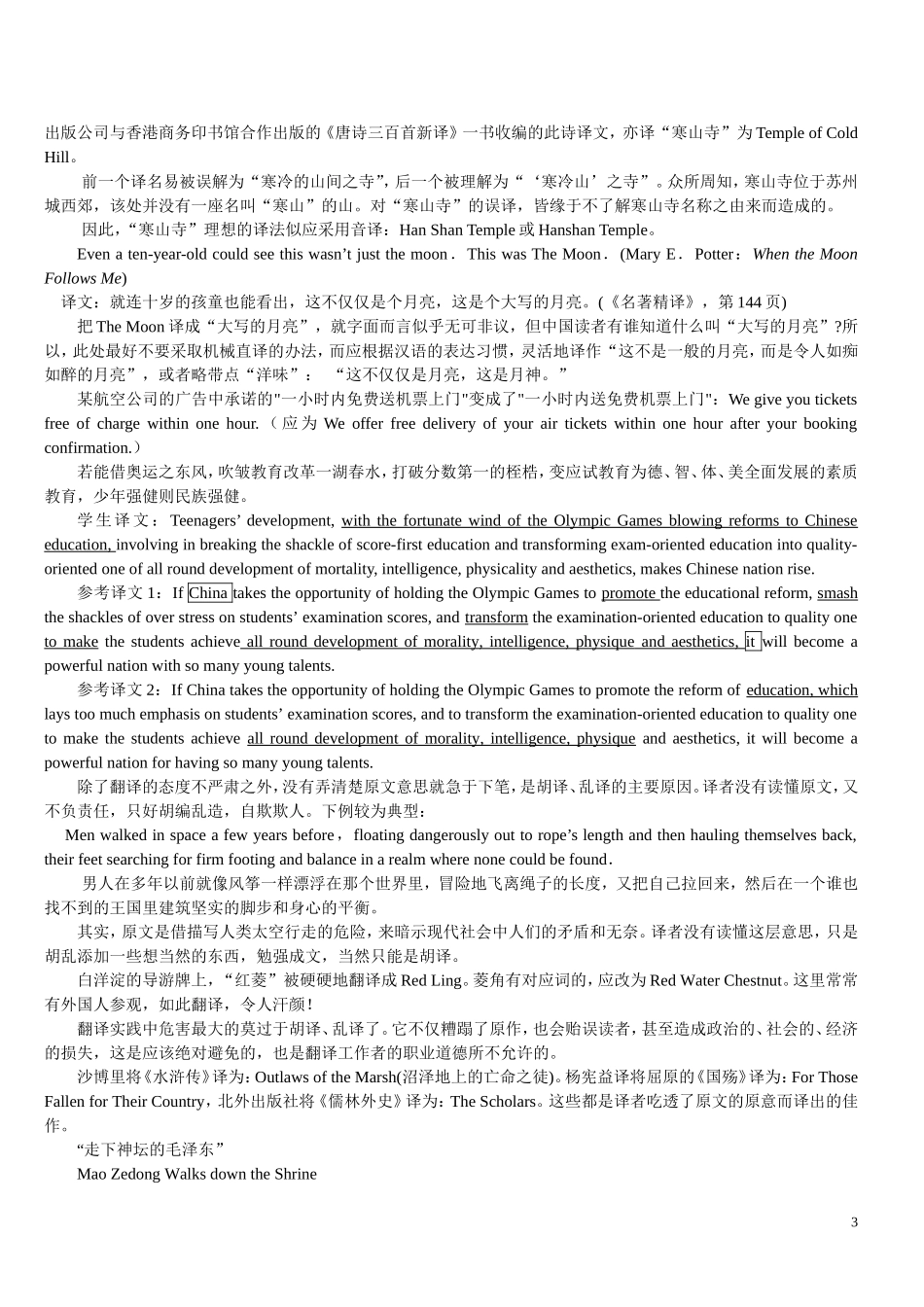翻译的八条“戒律”英语学习者一般愿做英译汉题目,怕做汉译英题目。由于历史、文化和思维方式的差异,汉英词语之间存在着或显或隐的翻译上的陷阱,导致汉译英远比英译汉易于出错。用鲁迅的话说,就是“词典不离手,冷汗不离身。”这提醒译者必须对这些差异心中有数(牢记“英汉五大区别”即,第一,形合和意合;第二是,繁复和简洁;第三是被动与主动;第四是抽象与具体;第五是变化和反复),然后再调和这些差异,“摆平”这些差异。为此,要迈好下面八道坎儿,时刻要留心这八条“戒律”——只想为你擦亮满天星光,以免在熟路上“迷失方向”。一、戒用词单一、从一而终汉语言简意赅,句子灵活,往往是一个汉语词汇对应 N 个英语词汇,具体到在本句中应该采用那个意项,务必抓住精神实质,不可以不变应万变。至于怎么应变,这就是显示译者功力的地方了。比如:都是“问题”,下面的翻译各不相同,几乎是打一枪换一个地方。共同关心的问题 questions of common interest解决问题 solve a problem问题的关键 the heart of the matter关键问题 a key problem原则问题 a question/ matter of principle悬而未决的问题 an outstanding issue没有什么问题 Without any mishap摩托车有点问题。Something is wrong with the motorcycle.问题不在这里。That is not the point.最近揭发出相当严重的贪污、受贿和官僚主义问题。Serious cases of embezzlement, bribery, and bureaucracy have been brought to light recently.译者要掌握这种汉英翻译中的“游击战术”,翻译家应是不同“文化王国”边境线上的“游击战略家”。例 2:to be on tenterhooks(心情烦乱、焦急、紧张) 1)She was on tenterhooks when she heard of her mother's illness.她得知母亲病了,坐立不安。2)He was on tenterhooks of expectation during our conversation.在我们谈话时,他因有所期待而如坐针毡。3)I found him on tenterhooks when he was waiting for his girlfriend.我发现他在等女朋友时显得局促不安。4)The President,being told of the strong earthquake in his country, was on tenterhooks every minute.得知本国发生了强烈地震,总统一直心乱如麻。5)His parents were on tenterhooks all the time until they got his letter.他的父母在...


